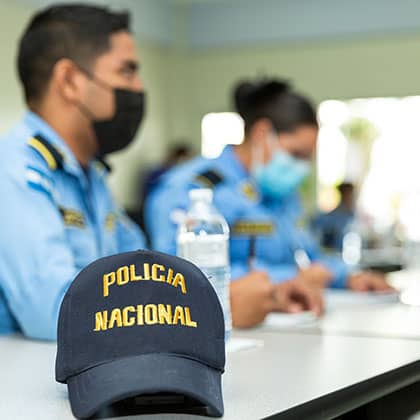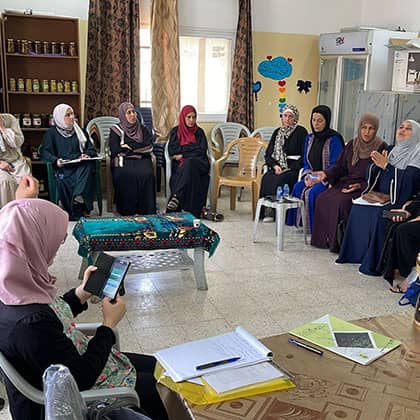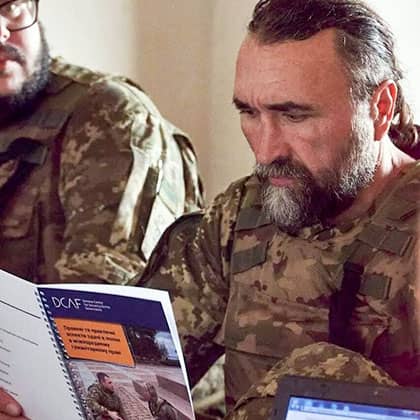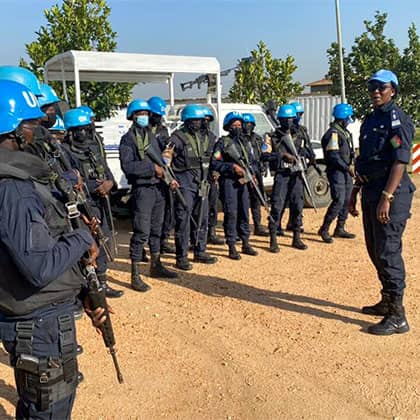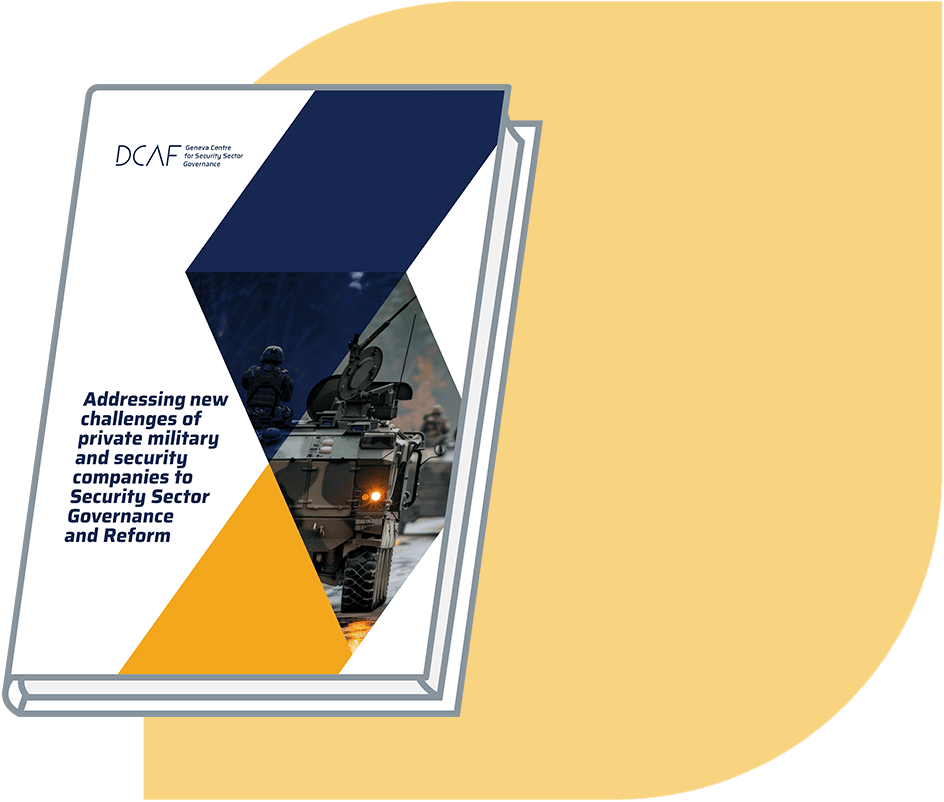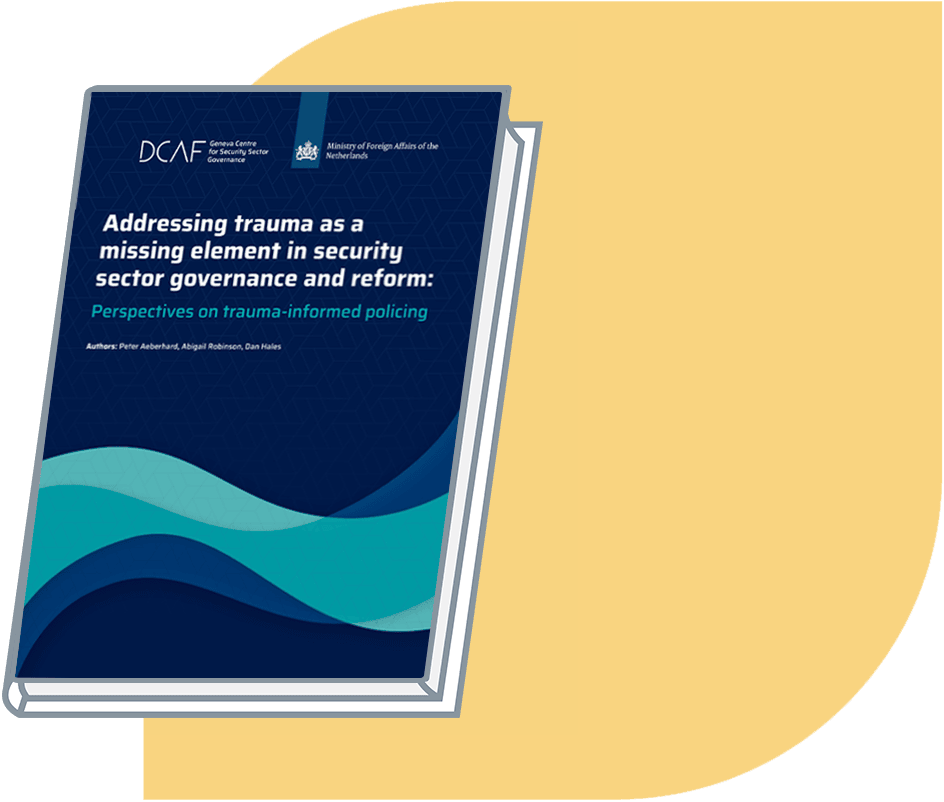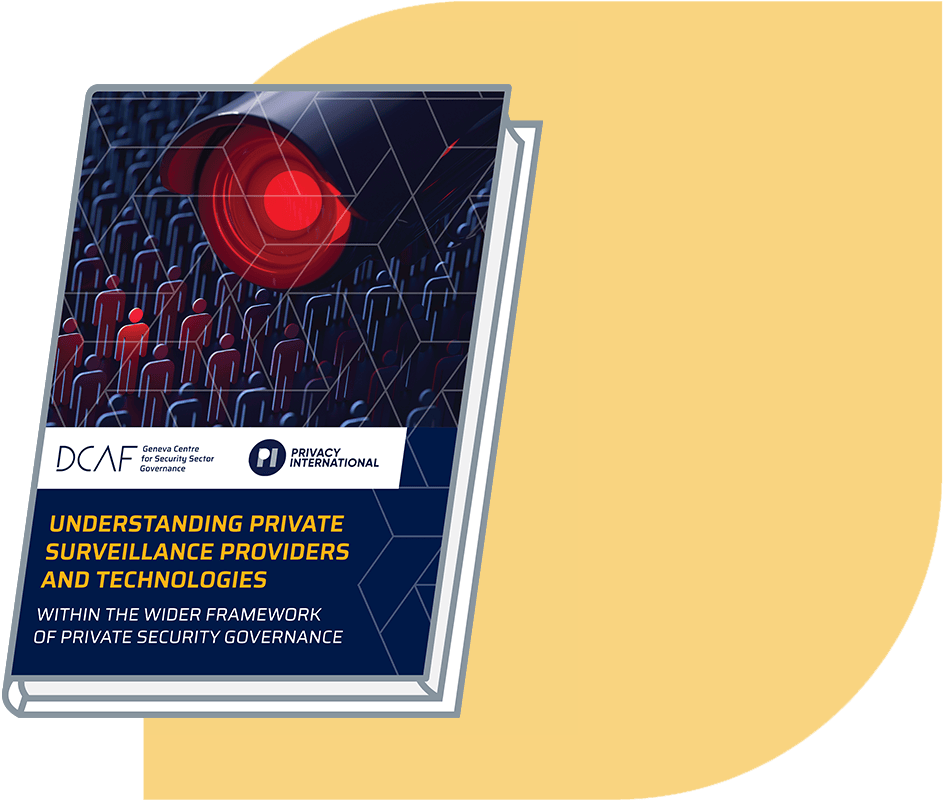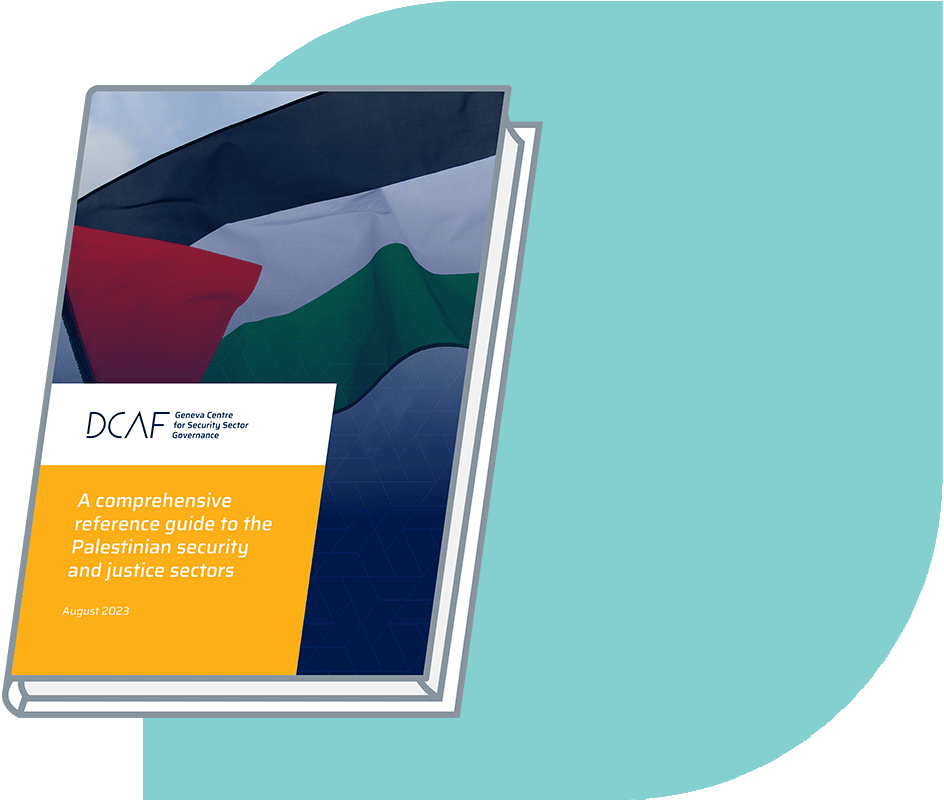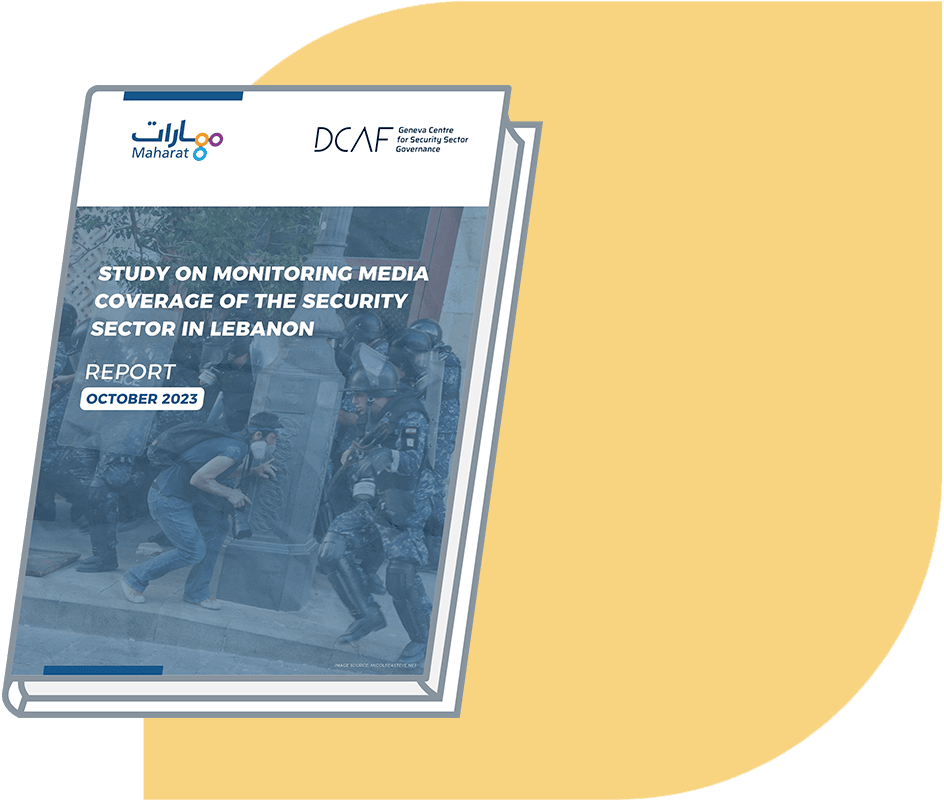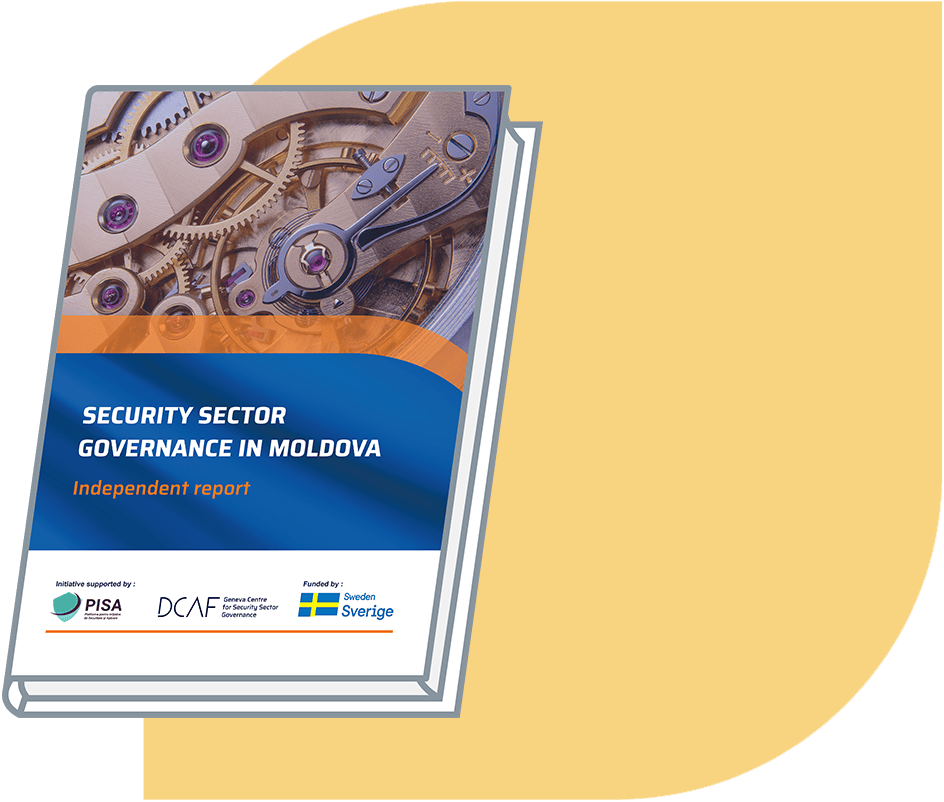We envision a world
We envision a world
in which democratically governed security sectors serve the needs of all people without discrimination and contribute to just, peaceful, and inclusive societies.



Celebrating our 25th Anniversary
Celebrating our 25th Anniversary
This year we are proud to mark 25 years supporting national and international partners to improve security sector governance in countries around the world.
Learn more about our journeyDCAF's Strategy 2025 - 2030
DCAF's Strategy 2025 - 2030
Grounded in lessons learned from the last five years, and DCAF's deep expertise in the environments in which we operate, our new Strategy lays out the objectives and the thematic and geographic priorities that will be shape our work for the next five years.
Read more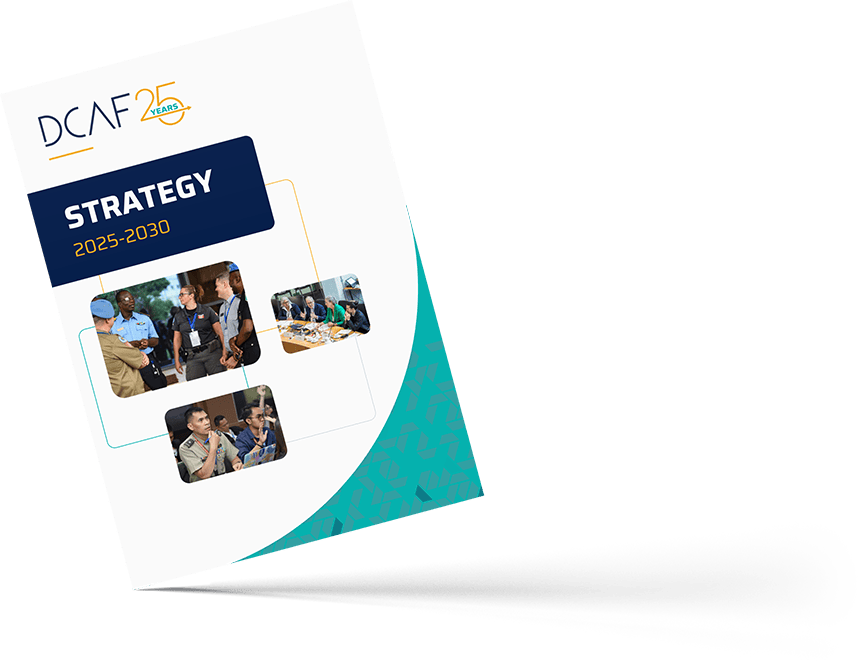
FOCUS
Building community confidence in policing
Since 2018, with the support of Swiss funding, DCAF has supported the Honduran National Police (HNP) with its ongoing transformation from a militarized force to a modern service grounded in international policing standards.
Legal identity and access to security and justice
In Kenya, as of 2022, an estimated 100,000 people lacked legal identity documents, leaving them vulnerable to insecurity, crime, fraud, and exploitation.
Putting people's needs at the centre of security in the Occupied Palestinian Territory
Since 2005, DCAF has been working in the occupied Palestinian territory to help strengthen the accountability and effectiveness of the security sector and reinforce its legitimacy by responding to the needs of Palestinians.
The importance of good governance even in the midst of war
Already working with Ukraine to update its military justice system prior to Russia's full-scale invasion in 2022, the Ministry of Defense asked for DCAF’s support to reinforce compliance of its armed forces with IHL.
Shifting the ground on gender equality in the Senegalese Armed Forces
Major Rokhaya Lô’s journey up through the ranks is not just a story of personal triumph—it highlights the structural barriers that women face in security institutions and how change can come through both individual courage and institutional support.

Thinking
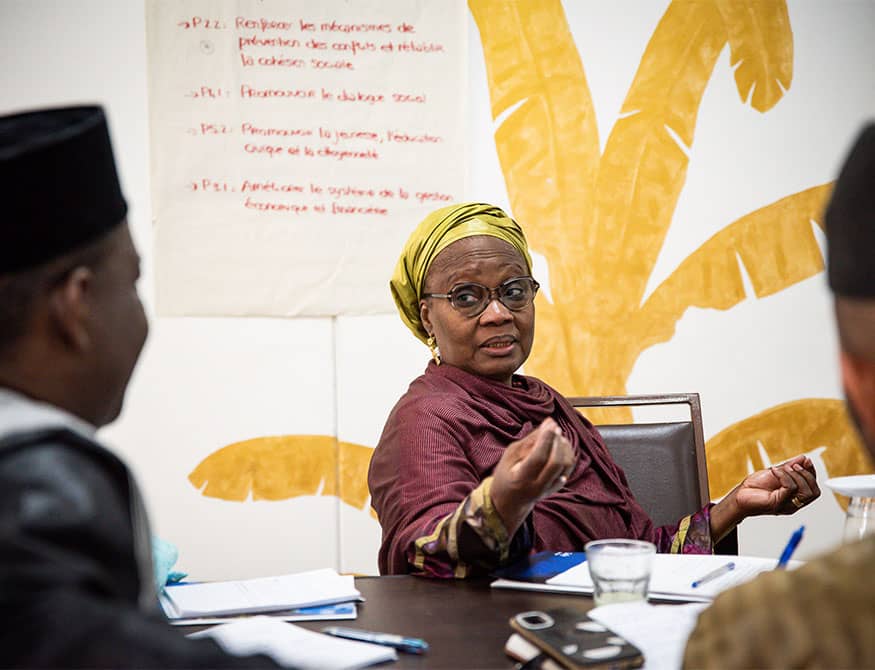
DCAF bridges the gap between national and international policy and practice through comparative research and analysis grounded in lessons-learned in operational work in 60 countries. A think tank with a global reputation for innovation, DCAF has been at the forefront of the development and evolution of the core concepts and principles of security sector governance and reform for the last 25 years. We also provide training in SSG/R tailored to security institutions, law makers, civil society groups, donor states, and multilateral institutions.
Our Strategy 2025 – 2030 puts a special focus on research of fast-evolving security challenges such as climate change and artificial intelligence. Each year we produce dozens of evidence-based reports, case studies, and analysis that draw on both the core theoretical concepts of SSG and the practical lessons learned from implementing reforms across a wide variety of contexts.
In 2024 that included the creation of a financial analysis tool that calculates the affordability of proposed institutional reforms, a guidance module on SSR and climate change for the United Nations Crossroads project, and supporting a comprehensive review of legislation governing intelligence services in Moldova.
Read more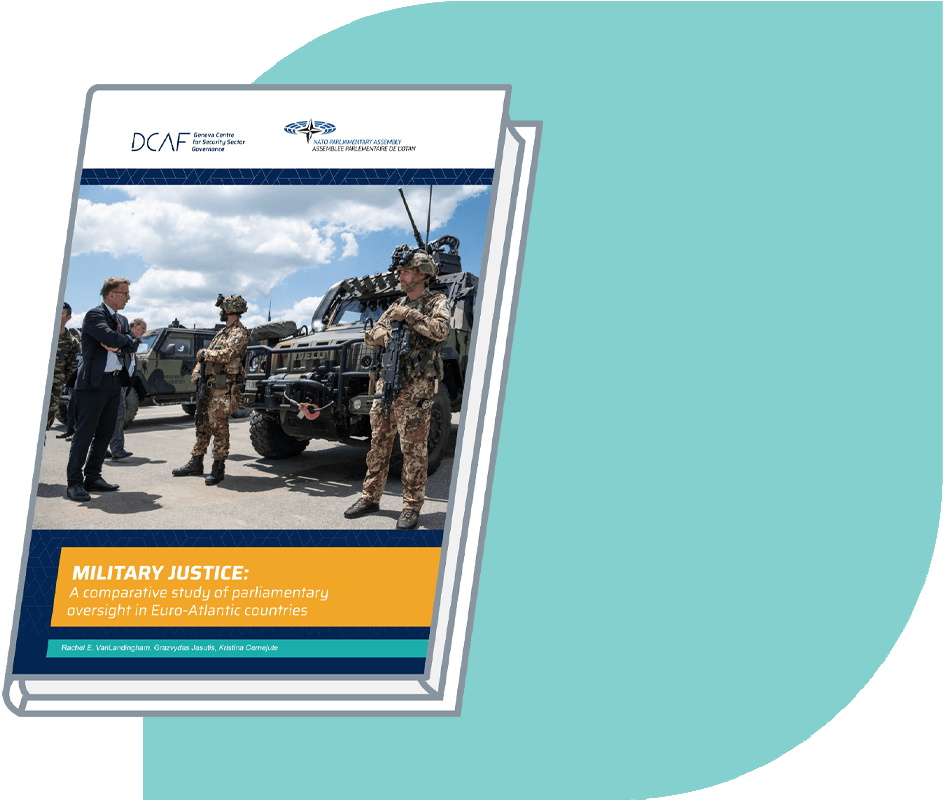
PUBLICATION
Military justice: A comparative study of parliamentary oversight in Euro-Atlantic countries
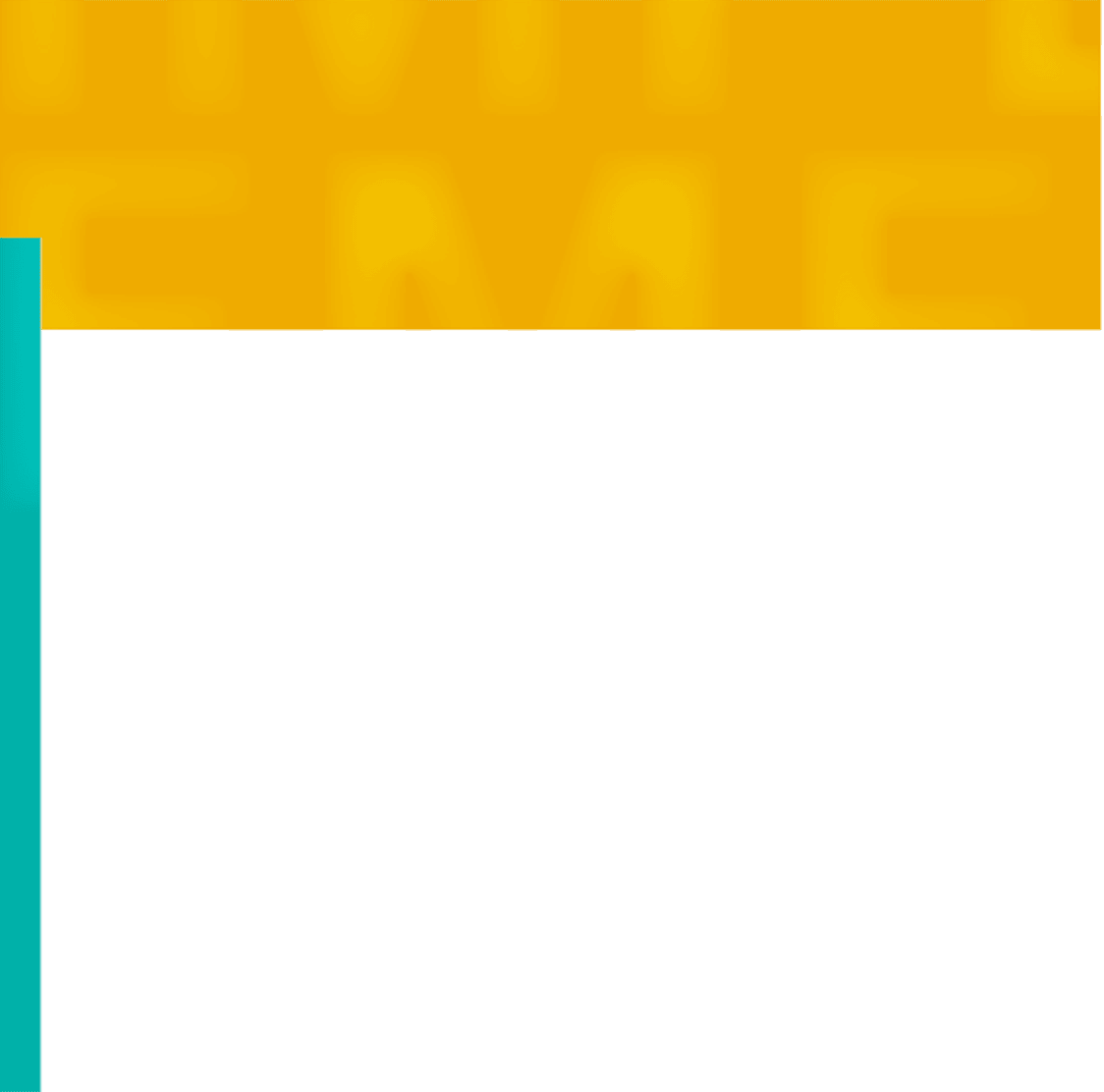
Implementing
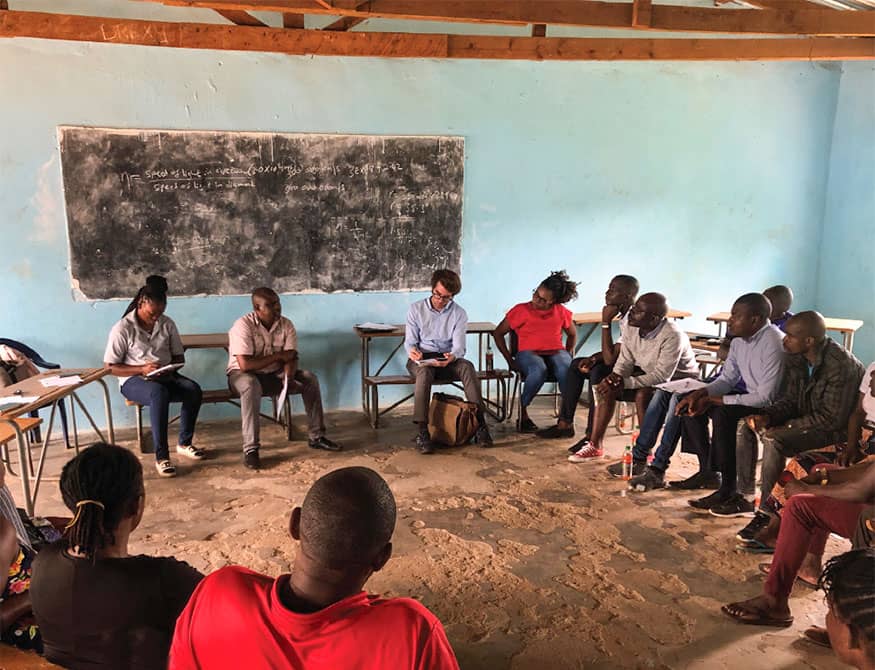
Establishing effective governance of security sector institutions requires the participation of many stakeholders, including the institutions themselves, like police and military, as well as lawmakers, government officials, ombuds organizations for armed forces, civil society organizations, and the media. Through 15 country offices on three continents, DCAF partners with these groups to develop and implement tailored reforms that aim to enhance community safety, strengthen trust, prevent conflict, and support sustainable peace and development.
While each context and institution are unique, the fundamental elements of good governance remain the same. It begins with establishing laws, policies, and regulatory frameworks that reflect international standards and are reinforced by strong oversight mechanisms. These are underpinned by fostering a culture of accountability and respect for the rule of law, human rights, and gender equality in security institutions. And finally, building the capacity of the media and civil society to play an effective role in citizen oversight.
Examples of this work in 2024 include fostering Community Safety Councils in Libya, providing training and assistance to address mental health issues in the Armenian armed forces, and strengthening working relationships between the media and police in Colombia.
Read more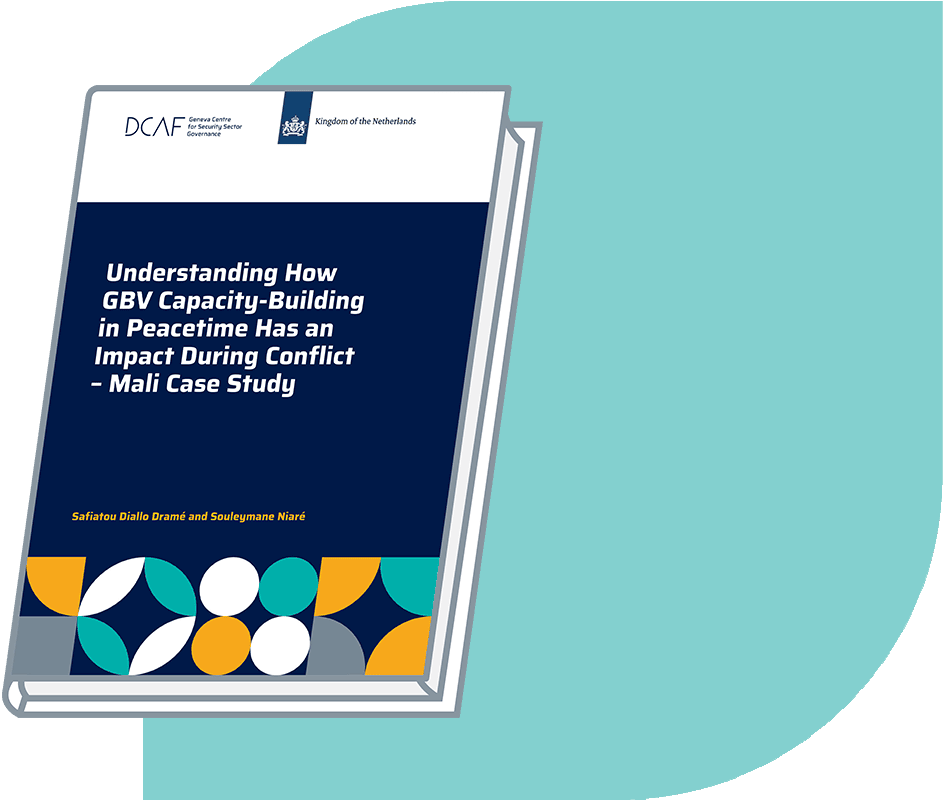
PUBLICATION
Understanding how gender-based violence capacity-building in peacetime has an impact during war
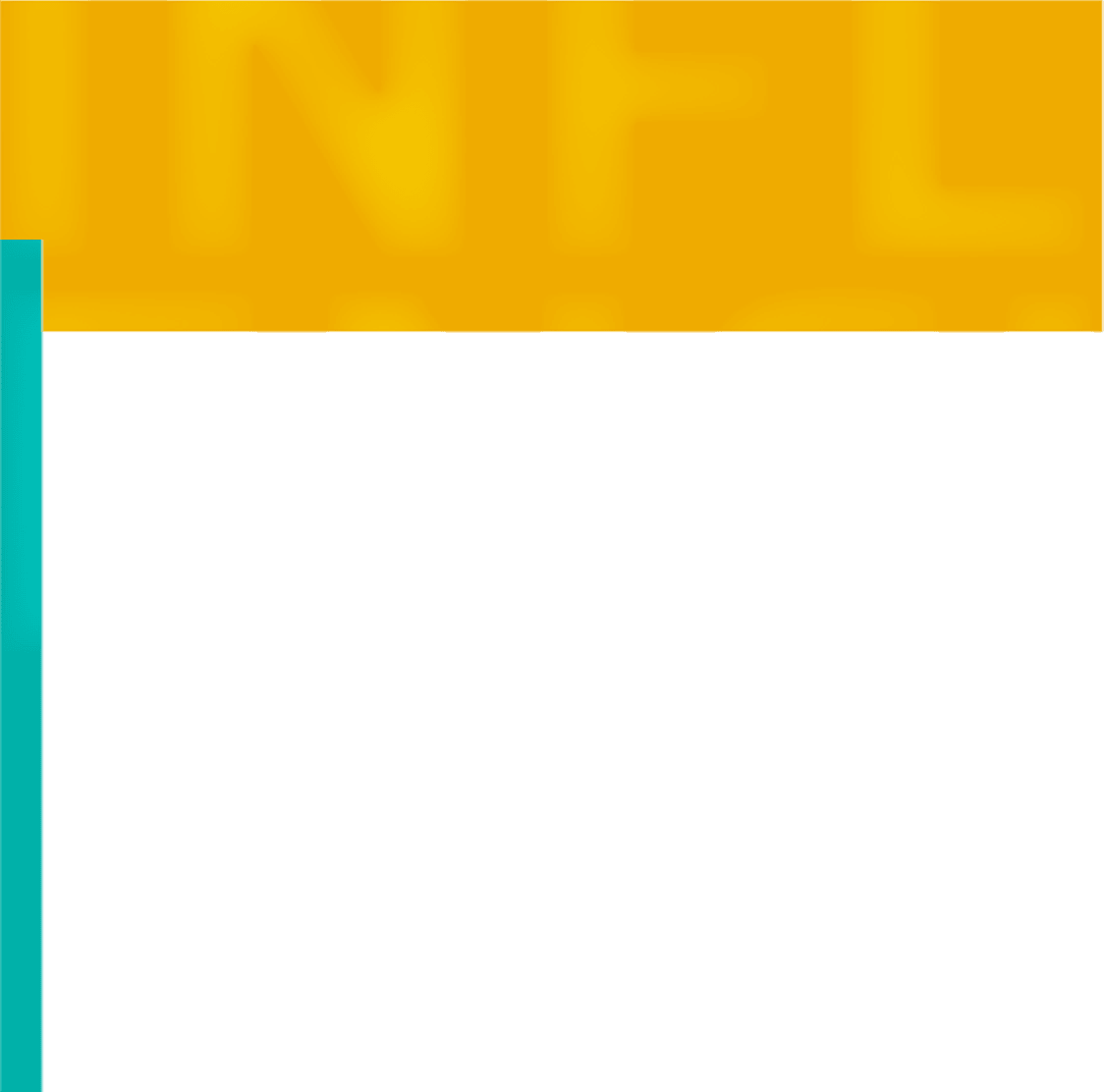
Influencing
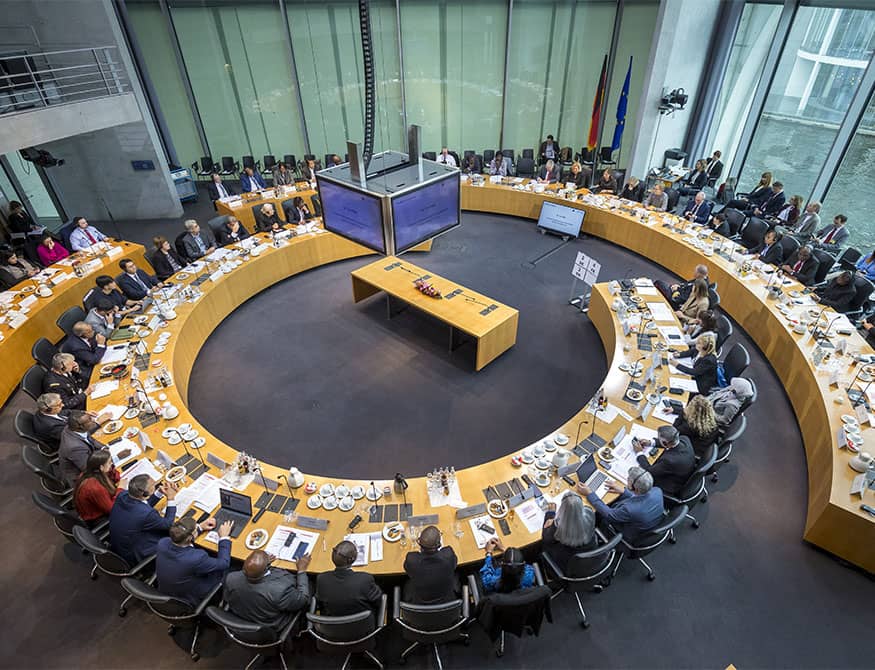
Since its founding in 2000, DCAF has played a leading role in the creation of international norms in SSG/R, and advancing it as an essential part of international policy frameworks and global agendas such as the 2030 Agenda for Sustainable Development. We have been a long-standing partner helping key international and multilateral organizations like the United Nations and the Organization for Security and Co-operation in Europe (OSCE) to develop their own SSG/R policies and guidelines.
We also influence state-level SSG policies and practices through technical guidance and a people-centered and human rights-based approach that aligns security governance with rule of law and international standards. DCAF’s toolkits, handbooks, and guidelines have become reference materials for policymakers worldwide.
In 2024, we supported the African Union and some of its Member States to put the AU’s SSR Policy Framework into action. We provided inputs to the UN Peacebuilding Architecture Review to reinforce the essential role of SSG in conflict prevention and mitigation, helped shape the language in the Pact for the Future, and provided advice on SSR aspects of peacekeeping operations to the Swiss government during the last year of its tenure on the United Nations Security Council.
Read more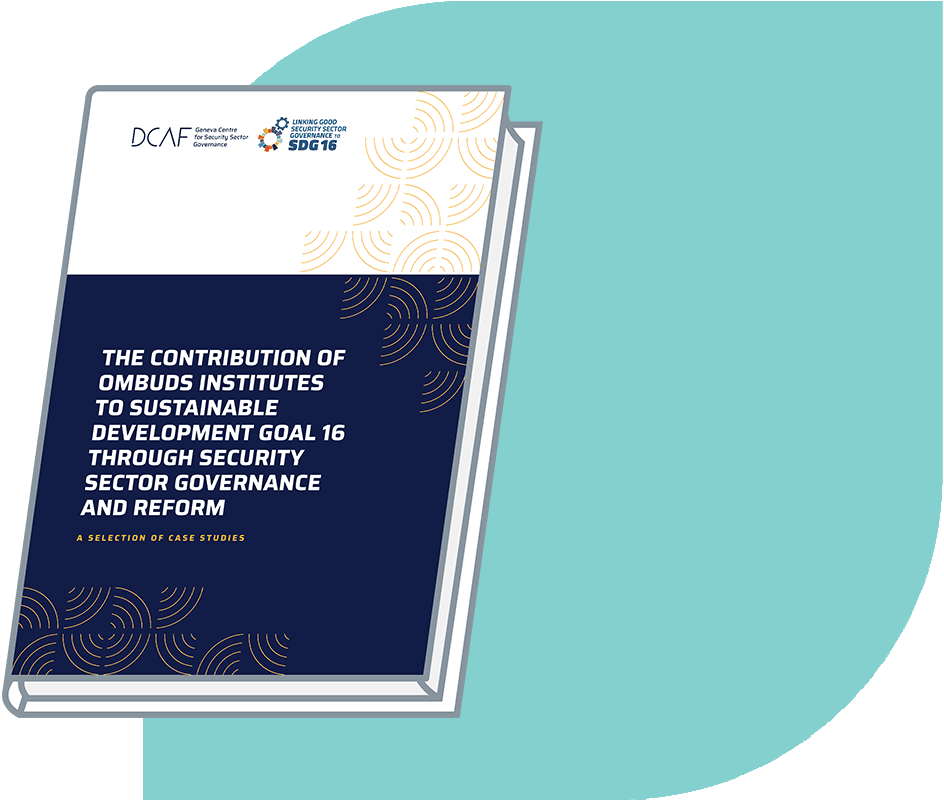
PUBLICATION
The contribution of ombuds institutes to SDG 16 through security sector governance and reform



